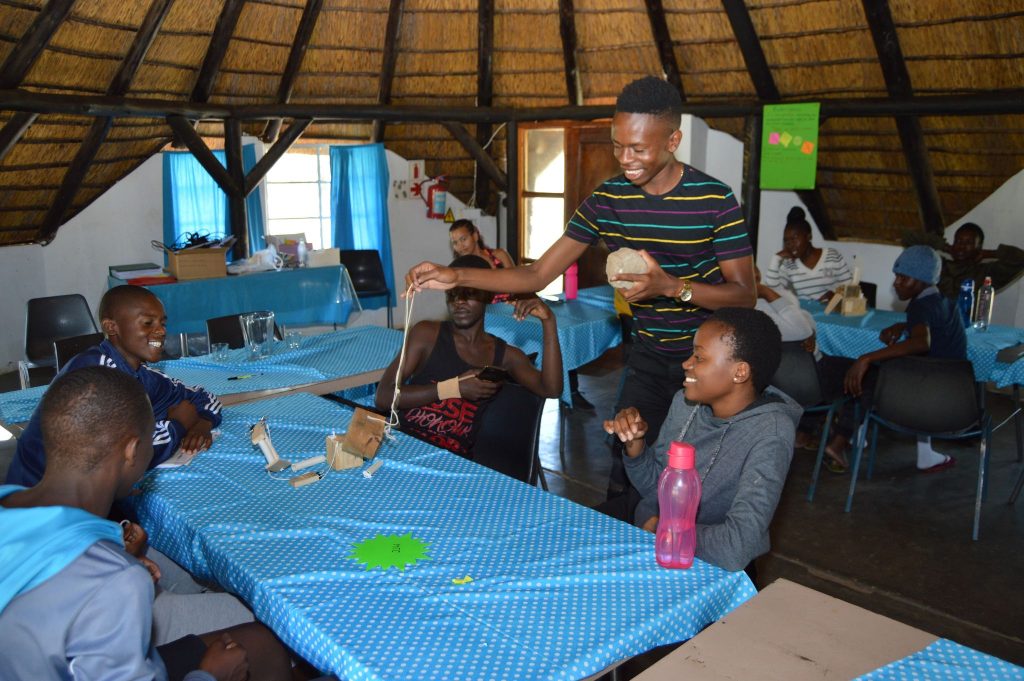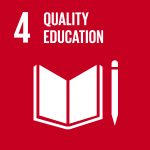Esta web utiliza cookies para que podamos ofrecerte la mejor experiencia de usuario posible. La información de las cookies se almacena en tu navegador y realiza funciones tales como reconocerte cuando vuelves a nuestra web o ayudar a nuestro equipo a comprender qué secciones de la web encuentras más interesantes y útiles.
Games for the SDGs: Using participatory games as an experiential learning approach for responding to SDG challenges in Namibia
Description
Institution
Stellenbosch Universty

Organizations/areas of the university involved
Centre of Complex Systems in Transition
Country
Namibia
This project was established to support the realization of capacity and knowledge enhancement for Agenda 2030 by engaging all students in interactive games, offering a platform to discuss the SDGs.
To provide the background, the Games for the SDGs project was given birth in 2016. It started with the running of the World Climate Game in 2016 just before the World Climate Summit in Marrakesh. It is imperative and helpful for young people in particular to understand the complexity of the climate negotiation process (Progress Namibia, 2018). The Climate Game was a live simulation (through modeling) of how political decisions directly affected temperature rises and connected consequences (such as drought, famine, flooding, and so on). These are all common complex challenges affecting Namibia as a developing country from Sub-Saharan Africa. The success of this game led to the further series of games. The Games for the SDGs Project was established to support the realization of capacity and knowledge enhancement on Agenda 2030, for all Namibians. Since its inception in 2016, the series of games have been running successfully. The games engage young Namibians in an open and free discussion around the SDGs and how we can better create just and sustainable societies without blowing the fuses of the planet.
Results and impact measured or expected
So far, the games have been run with about 600 young people in Namibia. These young people are young professionals, students and learners. The facilitation of the game is usually for small groups (anything between ten (10) and forty (40) people, depending on the specific game). This type of facilitation promotes a safe and intimate space which allows time for deep dialogue, which is the most essential part of the game.
The grounded theory approach is used to evaluate the games. Rather than assuming from the beginning what participants should learn, facilitators ask them what they have learned, what was new for them, what really surprised them. During these evaluations, participants often emphasize the systems’ character of the problem which they wish to participate in playing, and the other about complexity and interconnections.
Connection with the SDG framework
SDG 4 specifically calls for quality and inclusive education. This goal in itself is contingent to new thought processes, innovation and skills needed for understanding and addressing complex challenges that may hinder long-term sustainability Students and young professionals in particular need to be well equipped with knowledge that will enable the realization of Agenda 2030 in Namibia.
The potential opportunities provided by such games provide young people with a new lens to engage better with complexity (Dieleman, Studies and Huisingh, 2006) and ultimately, creates a transformative space for co-creating solutions important for achieving sustainable communities. These could arise from mental mode shifts driving behavioral change necessary for transformation in our Namibian communities. The games could also potentially engage and bring together different policy-makers to experience first-hand emerging challenges in Namibia such as climate change, land degradation and inequality.
Barriers and follow up
The games requires flexibility and availability to run, as a well as a depth knowledge on systems thinking and facilitation skills. To run more games and to reach more students and young people at grassroots, a training of trainers was conducted with 12 young people who are currently running some of the games with students and other young people across Namibia.
Transferability of the initiative
The games could also become an entry point for mainstreaming the SDGs in education programmes. To use the games as pedagogical approaches in teaching curriculums should however require well-developed strategies for education systems embracing new values and an attitude resulting from an ecological paradigm that could replace persisting social paradigms. They could complement current teaching and learning processes while contributing to the sharpening of learners’ knowledge and the necessary skills for promoting holistic development. The systematic use of this pedagogical approach realigns itself within the developing component of old education systems. The sensible capacities of facilitators or educators should be professionally capacitated further to be able to execute lesson plans on sustainability, SDGs and systems thinking. New perspectives will enable facilitators and/or educators to positively improve the achievements of students while understanding the impact of each of their choices on their institution such as Stellenbosch.
Education 4 SDG funciona gracias a WordPress

